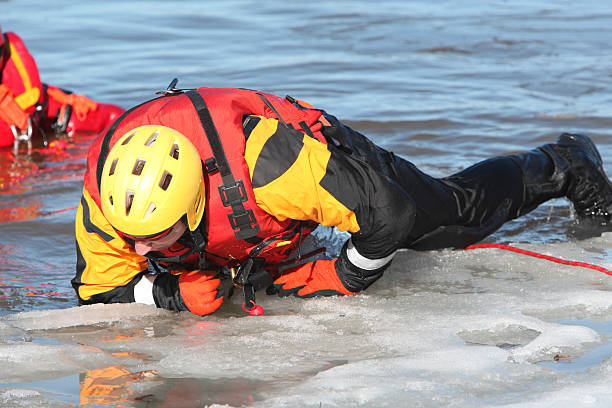Lifeguard training is an excellent way to build a strong character. The training involved in becoming a lifeguard involves developing skills such as teamwork, communication, leadership, and problem-solving. Lifeguards must also possess physical strength and endurance to perform their duties effectively.
The training and certification process can be challenging, but it is a great way to develop valuable skills that can be applied in many aspects of life.
Building Teamwork Skills
Teamwork is an essential aspect of lifeguarding, as lifeguards work in groups to monitor and manage aquatic environments. During lifeguard training, participants learn how to work together to identify potential hazards and respond effectively to emergencies.
They also learn how to communicate with one another to coordinate their efforts, which is crucial in situations that require quick decision-making. The trainees practice working in teams by performing simulated rescues and scenarios.
By working together, they develop trust and respect for one another, which is essential in creating a cohesive team. The teamwork skills developed during lifeguard training California can be applied in many other settings, such as the workplace or in personal relationships.
Effective Communication
Effective communication is critical in any profession, and lifeguarding is no exception. Lifeguards must communicate clearly and effectively with other team members, as well as with the public. During lifeguard certification, trainees learn how to communicate with people in various situations, including those who may be panicking or distressed.
Lifeguards must also be able to communicate non-verbally, using hand signals to direct other team members and patrons. Effective communication skills are essential in many other areas of life, including in the workplace and in personal relationships. By learning how to communicate effectively during lifeguard training, individuals can develop skills that will serve them well throughout their lives.
Leadership Development
Lifeguards are responsible for supervising other lifeguards and managing aquatic environments. As such, they must possess strong leadership skills. During the certification, trainees learn how to be effective leaders, developing skills such as delegation, problem-solving, and decision-making.
Lifeguards must also be able to remain calm and focused in high-pressure situations, which requires strong leadership skills. By developing leadership skills during training, individuals can apply these skills in many other areas of their lives, such as in the workplace or in personal relationships.
Problem-Solving Skills
Lifeguards must be able to identify and solve problems quickly and effectively. During lifeguard training, participants learn how to assess situations and make quick decisions based on the information at hand. They also learn how to identify potential hazards and take steps to prevent accidents from occurring.
Lifeguard classes also teach problem-solving skills by presenting trainees with various scenarios and challenges that they must overcome. By developing problem-solving skills during lifeguard training, individuals can apply these skills in many other areas of their lives, such as in the workplace or in personal relationships.
Physical Strength and Endurance
In addition to developing valuable skills such as teamwork, communication, leadership, and problem-solving, lifeguard training also requires participants to develop physical strength and endurance. Lifeguards must be able to perform a variety of physical tasks, such as swimming long distances, lifting and carrying heavy objects, and performing CPR.
The certification requires participants to pass physical fitness tests to ensure that they are physically capable of performing the duties of a lifeguard. By developing physical strength and endurance during lifeguard training, individuals can improve their overall health and well-being.
The Importance of Responsibility
Lifeguard training also emphasizes the importance of responsibility, as lifeguards are responsible for the safety and well-being of others. They must be able to make quick decisions and take action in emergency situations, which requires a high level of responsibility.
During lifeguard certification, trainees learn how to take responsibility for their actions and decisions, as well as the consequences that may result from them. The sense of responsibility developed during the training can be applied in many other areas of life, such as in the workplace or in personal relationships.
The Value of Lifeguard certification
Lifeguard certification is not just a symbol of completion of training; it is a valuable credential that can open up many opportunities for lifeguards. Certified lifeguards can work at a variety of aquatic environments, including pools, water parks, and beaches. They may also have the opportunity to advance their careers by taking on leadership roles or pursuing additional certifications.
Additionally, lifeguard certification can provide a sense of pride and accomplishment for those who have completed the rigorous training and testing process. It is a testament to the hard work and dedication required to become a lifeguard. The American Lifeguard Association is one organization that offers lifeguard certification and provides ongoing training and support for lifeguards throughout their careers.
Conclusion
Lifeguard training is an excellent way to build a strong character by developing skills such as teamwork, communication, leadership, problem-solving, responsibility, and physical strength and endurance. These skills are valuable in many areas of life, and lifeguard certification is a credential that can open up many opportunities for those who have completed the training.
By becoming a certified lifeguard, individuals can make a difference in the lives of others while developing valuable skills that will serve them well throughout their lives.
